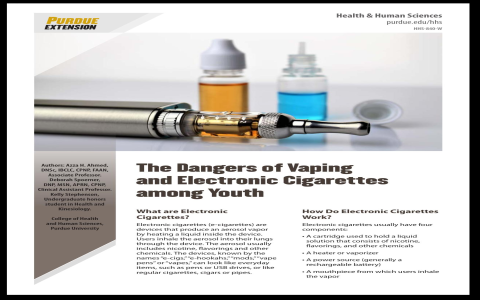Electronic cigarette aerosol, commonly called “vape smoke,” is not harmless water vapor. While generally considered less hazardous than combustible cigarette smoke due to the absence of combustion, significant health concerns exist.
Key Chemical Constituents
The aerosol contains:

- Nicotine: Highly addictive, harms adolescent brain development, linked to cardiovascular issues.
- Ultrafine Particles: Inhaled deep into lungs, cause inflammation and respiratory issues.
- Volatile Organic Compounds (VOCs): Irritants and potential carcinogens (e.g., formaldehyde, acrolein) form when e-liquids overheat.
- Trace Metals: Particles of lead, nickel, tin from the heating coil.
- Flavoring Chemicals: Many compounds like diacetyl (associated with “popcorn lung”) lack inhalation safety data.
Documented Health Risks
- EVALI (E-cigarette or Vaping product use-Associated Lung Injury): Serious respiratory illness primarily linked to Vitamin E acetate in THC-containing products, but highlighting lung vulnerability.
- Increased Cardiovascular Stress: Studies show elevated heart rate, blood pressure, and arterial stiffness acutely after use.
- Lung Irritation & Damage: Cough, wheeze, asthma exacerbations; potential long-term damage under investigation.
- Immune Suppression: Evidence suggests vaping alters immune cell function in the lungs.
- Youth Nicotine Addiction: E-cigarettes are a primary driver of nicotine dependence in adolescents.
Comparative Risk ≠ Safety
Experts emphasize “harm reduction” refers to reduced risk only when an adult smoker completely switches from cigarettes to e-cigarettes. For non-smokers, especially youth, e-cigarette use introduces avoidable health risks.
Secondhand Exposure
While emitting fewer toxicants than secondhand smoke, e-cigarette aerosol releases nicotine and fine particles into the environment, posing potential health risks to bystanders.
In conclusion, electronic cigarette aerosol delivers a complex mixture of chemicals with demonstrable health risks. It is not a safe alternative for non-smokers, youth, or pregnant women. Adult smokers seeking cessation should discuss FDA-approved medications before considering e-cigarettes.










